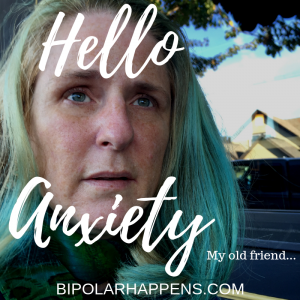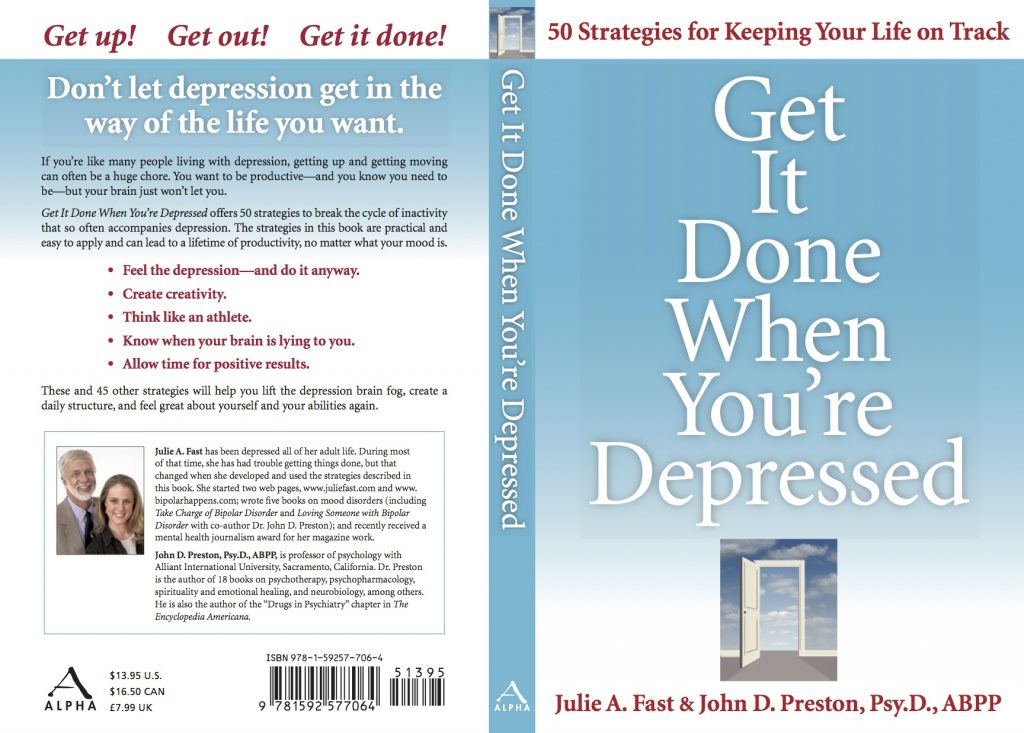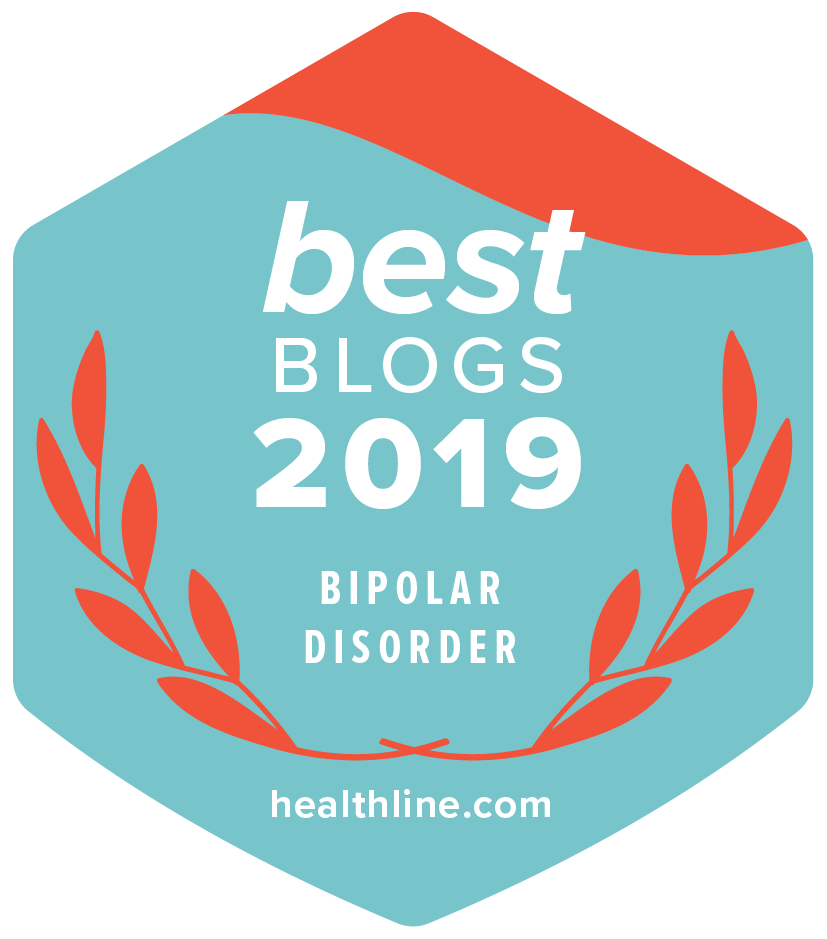Anxiety is common in bipolar, but will always be attached to mania and/or depression symptoms. It helps to know if you have anxiety when you’re not in a mood swing. If you do, the anxiety is separate from bipolar and needs to be addressed separately. The good news? Anxiety responds well to natural treatments.
Anxiety is very common in people with bipolar, but it will always be attached to either a depression, mania or mixed mania episode. (Mixed mania is also called dysphoric mania.) This means you will NOT have anxiety if the bipolar mood swing is not there as well.
This can all change if you experience a stressful event in life, especially if the event is unexpected and has nothing to do with your own actions or choices.
Anxiety can enter into your life at any age even if you’ve never had it separately from your bipolar disorder symptoms in the past.
During a world crisis, anxiety can show up in anyone! Those of us with bipolar need to be extra careful when experiencing anxiety causing events as anxiety can then affect our bipolar.
I know! We rarely get a break!
The following is a simple check list to help you determine if anxiety is high in your life right now and if you need help for anxiety that is separate from your bipolar symptom management plan.
1. You are not noticeably depressed or manic.
2. You have thoughts such as, This is never going to end. I’m going to be stuck in this loop forever and I’m going to lose my mind if this happens. Life is so out of control and I don’t think I can handle what is going on at all. What is happening to me! I have never been this stressed in my life!
3. This is usually accompanied by noticeable breathing problems, usually shortness of breath or the inability to take a breath. It can also feel like chest pains and you might wonder if you’re having a heart attack. The ribs can have sharp pains as well.
4. Along with 2 and 3, you will also find yourself scared to do behaviors that you normally do with ease such as going outside, talking with people on the phone or finding the positive side of a situation. Anxiety is all encompassing and fear is one of the main symptoms that keeps one from getting on with life.
These are just a few of anxiety’s many symptoms. If you have all of the above and feel really, really scared and out of breath, this is a panic attack.
Some common causes of non bipolar anxiety:
– Head injuries, even mild concussions can increase anxiety.
– Overuse of caffeine.
– High THC cannabis marijuana.
– Energy drinks that include amnio acids such as taurine.
– A very stressful event that leads to anxiety. If the event is traumatic, the resulting anxiety is called PTSD.
– A reaction to a medication.
What to do if the anxiety is really bad right now:
1. Praise yourself for reading about the symptoms and doing something about them. Self awareness is the only way to finally get help for anxiety.
2. Practice even breathing. It’s the #1 treatment for anxiety, including intense panic attacks. The goal is to have the balance of oxygen and carbon dioxide remain steady. Breathe in for the same count that you breathe out and keep increasing the time between breaths. Pranayama yoga breathing videos can really help when the anxiety is flaring.
3. Use Cognitive Behavior Techniques (CBT). They really work with anxiety. You can talk yourself out of some pretty out of control and scary thoughts once you know that anxiety is the cause of what you’re going through.
4. Remove as much of the trigger as possible. During world events for example, I often go an entire day without looking at any social media. It helps immeasurably. Anxiety can turn into OCD type scrolling if left too long, so I make sure to remove any part of a trigger that’s in my control.
Anxiety responds extremely well to exercise that requires balanced breathing, talking yourself down from the out of control thoughts and ultimately removing as much of the trigger you are experiencing as possible.
In 2012, I had a biking accident that resulted in a serious head injury. A lasting effect of the injury was a strong anxiety disorder that is very separate from my bipolar disorder and psychotic disorder. The head injury didn’t affect my bipolar, but it created anxiety. I now use the ideas in my
bipolar and depression books to help myself manage the often overwhelming anxiety.
We can handle anything. We are strong people who happen to have really, really difficult brains. Knowing that what you are going through has a name: ANXIETY, can help you find natural relief from anxiety’s very life altering symptoms.
Julie









